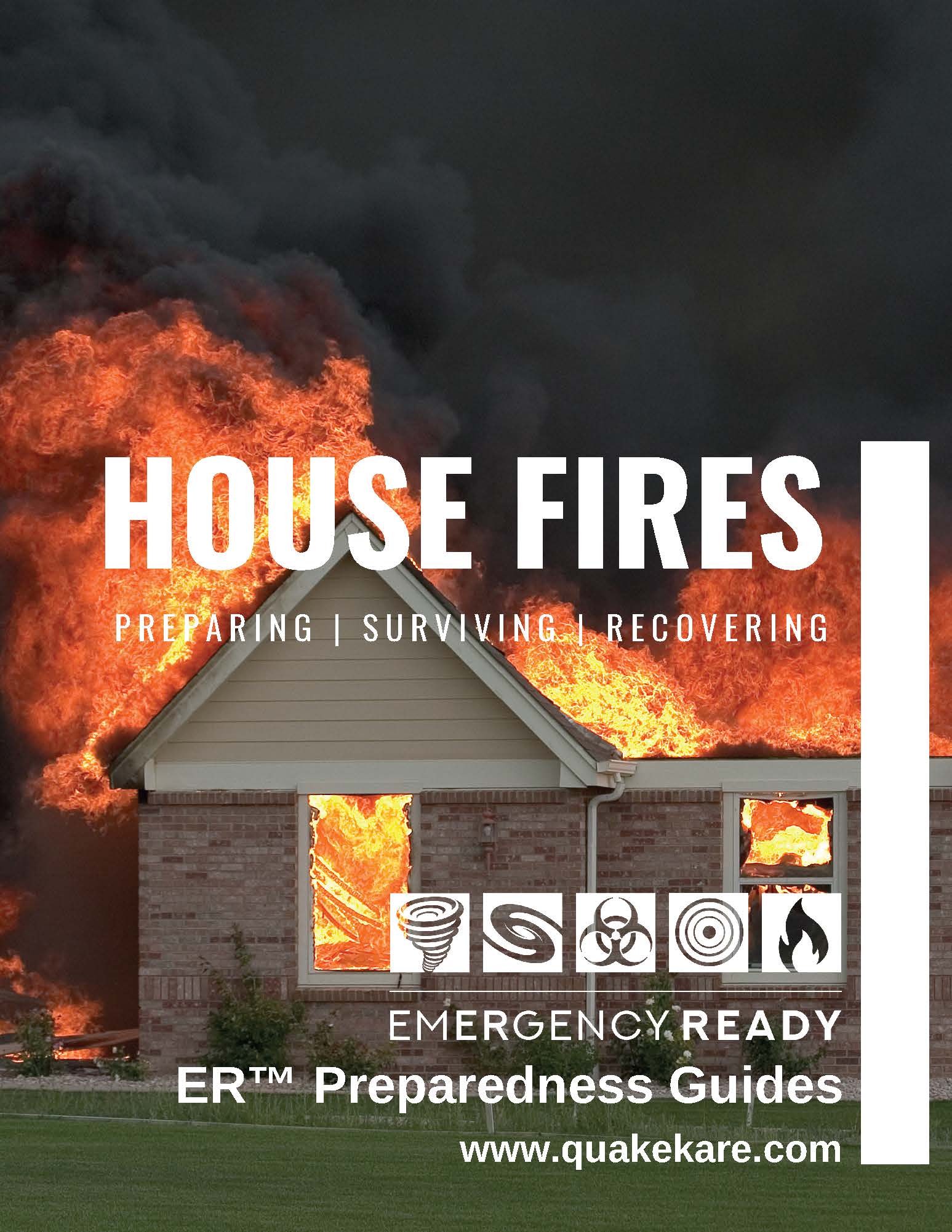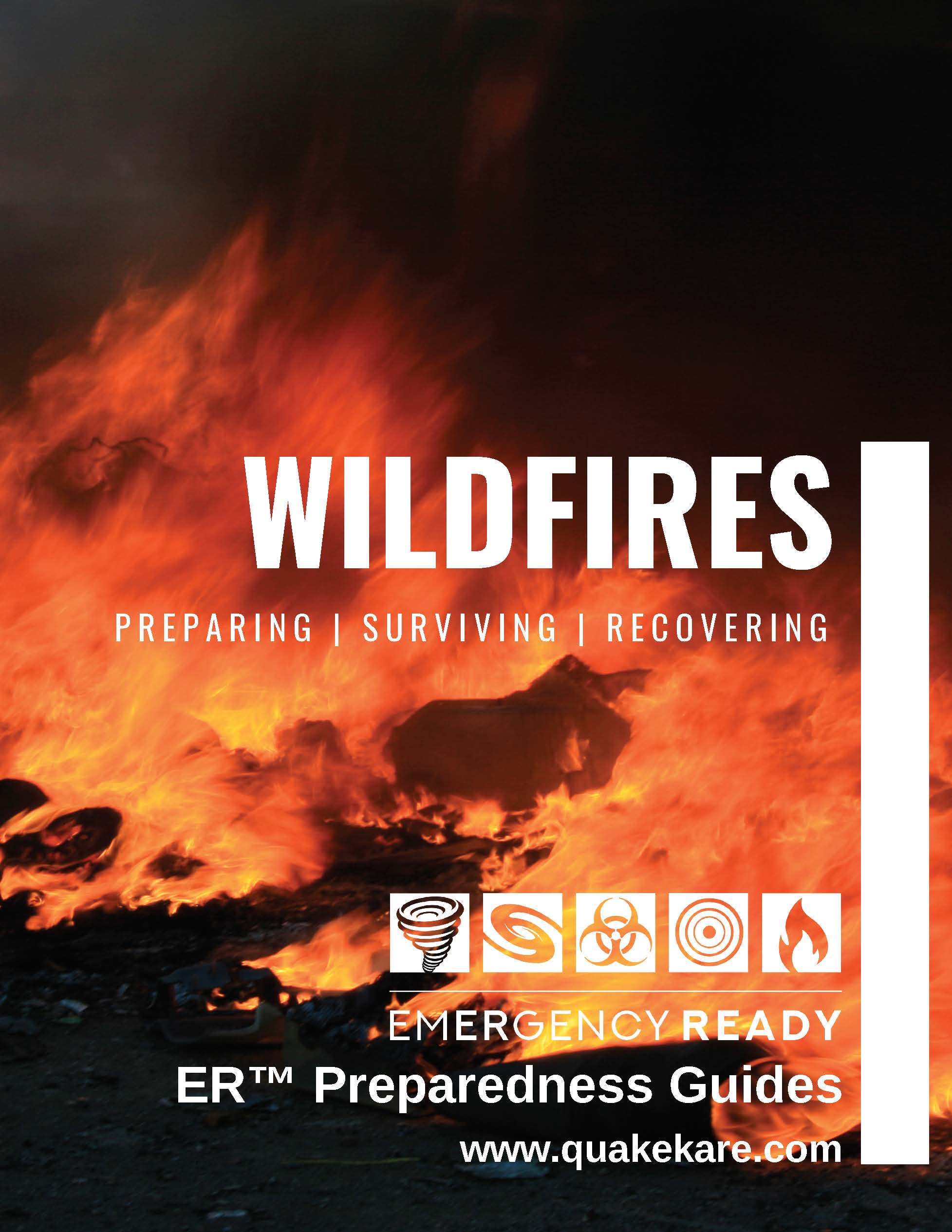FIRE PREPAREDNESS GUIDE
PLAN AND GET READY
Fire is one of the most common disasters. Fire causes more deaths than any other type of disaster. But fire doesn't have to be deadly if you have early warning from a smoke detector and everyone in your family knows how to escape calmly. Please be serious about the responsibility for planning for and practicing what to do in case of a fire. Be prepared by having various household members do each of the items on the checklist below. Then get together to discuss and finalize your personalized Fire Plan. Install smoke detectors outside each sleeping area and on each additional level of your residence. Keep new batteries on hand.
FIRE PLAN
- Look at the fire extinguisher to ensure it is properly charged. Use the gauge or test button to check proper pressure. If the unit is low on pressure, damaged, or corroded replace it or have it professionally serviced. Know how to use it.
- Draw a floor plan of your home; mark two fire escape routes for each room.
- Pick a safe outside place to meet after escaping from a fire.
- Practice a low-crawl escape from your bedroom. Try it with your eyes closed to see how well you could do in thick smoke.
- Conduct a home fire drill at least twice a year.
MAKE YOUR HOME FIRE SAFE
- Smoke detectors save lives. Install a battery-powered smoke detector outside each sleeping area and on each additional level of your home.
- Use the test button to check each smoke detector once a month. When necessary, replace batteries immediately. Replace batteries at least once a year.
- Have a working fire extinguisher in the kitchen. Get training from the fire department in how to use it. Also include in the kit written instructions on how to turn off utilities at your house.
- Conduct periodic fire drills, so everyone remembers what to do when there is a fire.
PLAN YOUR ESCAPE ROUTES
- Determine at least two ways to escape from every room of your home. If you must use an escape ladder, be sure everyone knows how to use it.
- Select a location outside your home where everyone would meet after escaping.
- Practice your escape plan at least twice a year. Once you are out, stay out!
ESCAPE SAFELY
- If you see smoke in your first escape route, use your second way out.
- If you must exit through smoke, crawl low under the smoke to escape.
- If you are escaping through a closed door, feel the door before opening it. If it is hot, use your second way out.
- If smoke, heat, or flames block your exit routes, stay in the room with the door closed. Signal for help using a bright-colored cloth at the window.
- If there is a telephone in the room, call the fire department and tell them where you are.
DOWNLOAD OUR PRINTABLE HOUSE FIRE GUIDE


